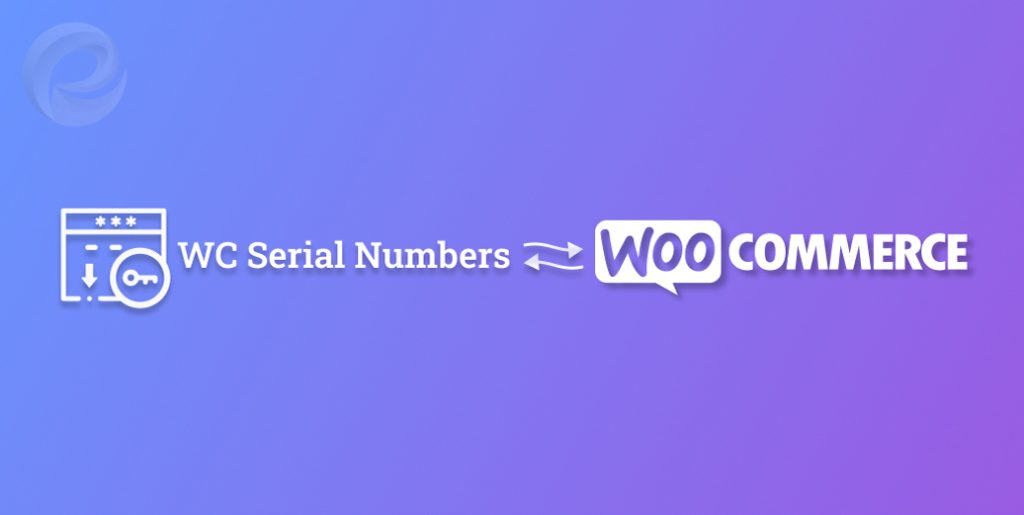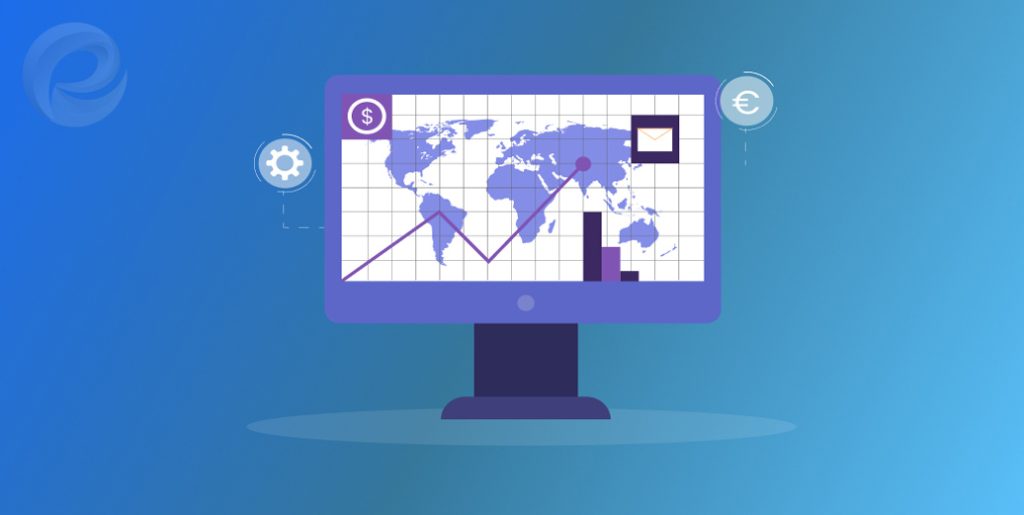Software License Management: Trends and Predictions

Software license management is a critical aspect of the software industry that ensures compliance, controls costs, and maximizes the value of software assets. The software industry is experiencing a shift towards subscription-based models, driven by the rise of Software-as-a-Service (SaaS).
This trend provides businesses with greater flexibility, scalability, and cost-effectiveness. Additionally, there is an increased emphasis on software compliance, as companies recognize the impact of piracy and unauthorized usage on their revenue and reputation.
Looking ahead, the future of software license management will be shaped by the continued prevalence of cloud-based software and the integration of advanced technologies such as Artificial Intelligence (AI) and machine learning.
Furthermore, cybersecurity will play a vital role in ensuring the security and integrity of software licenses. In this article, we will explore the current trends and predictions for license management in the software industry.
So without further ado, let’s get started.
What is Software License Management
Software License management is a critical component of software asset management (SAM). SAM is a set of best practices that enable businesses to manage and optimize their software assets throughout their lifecycle.
The goal of SAM is to ensure that businesses have the right software licenses to meet their needs, that the licenses are used efficiently, and that they are compliant with legal and contractual requirements.
License management is a cornerstone of SAM, as it enables businesses to track license usage, monitor compliance, and manage license renewals. License management involves a range of activities, including license procurement, deployment, monitoring, and optimization.
It also involves managing license agreements and contracts, ensuring compliance with licensing terms and conditions, and managing license renewals. Effective software license management requires a deep understanding of licensing models, license metrics, and license usage data.
Why is License Management Important for the Software Industry
Effective license management is critical for both software sellers and businesses that rely heavily on software to run their operations. It can help businesses reduce costs, avoid compliance risks, and optimize their software investments.
For software sellers, license management is essential for revenue generation. Software licensing is a significant source of revenue for most software sellers, and effective license management is crucial for maximizing revenue while minimizing compliance risks.
Software licenses can be a significant expense for businesses, and effective license management is essential for ensuring that they have the right licenses to meet their needs, that the licenses are being used efficiently, and that they are compliant with legal and contractual requirements.
Where to Sell Software with Full Fledged License Management Solution

If you’re a software seller or software key reseller, It can be easily distributed and can potentially reach a large audience with WC Serial Numbers and a WooCommerce site.
Why take stress when you can simply just tune in WC Serial Numbers with your WooCommerce store to sell software with all the necessary features? This includes license key generation, management, import/export of keys, renewals, upgrades, and many more.
Typically, any software can be sold as a subscription service. That is why, using WC Serial Numbers with WooCommerce can help stabilize cash flow, offer several benefits, and increase the business’s overall value.
WooCommerce is SEO-friendly, making it easier for potential customers to discover your store through search engines. The platform offers a wide range of plugins that can help to manage your online store, including payment processing, license key generation, and more.
Another advantage of using WooCommerce to sell software is its security. The platform is designed to be secure, with regular updates and security patches to protect against potential threats. Plus using WC Serial Numbers will also make sure your product’s security.
Top Trending License Management Solutions
The software industry is constantly evolving, and license management is no exception. Let’s get to know some of these.
- Subscription-based Models
Subscription-based licensing models are becoming increasingly popular in the software industry. With a subscription-based model, customers pay a monthly or annual fee for access to the software, rather than purchasing a perpetual license upfront.
Subscription-based models offer several benefits, including predictable and recurring revenue for software sellers and lower upfront costs for customers.
- Cloud-based Solutions
Cloud-based license management solutions are becoming more prevalent in the software industry. It offers several benefits, including scalability, flexibility, and accessibility. This way, license management can be performed from anywhere with an internet connection, which is particularly beneficial for businesses with remote workers or distributed teams.
- License Management Automation
License management automation is a growing trend in the software industry. Automation can help streamline license management processes, reduce manual effort, and minimize errors. Automation can also help businesses optimize their license usage, which can lead to cost savings and increased efficiency
Additionally, there is a growing demand for flexible licensing options.
The emergence of pay-per-use and consumption-based models allows businesses to tailor their software licensing to their specific needs. By keeping up with these current trends in license management, organizations can optimize their software usage, reduce costs, and ensure compliance with licensing agreements.
Current Trends in Software License Management

The software industry is constantly evolving, and license management is no exception. In the ever-changing landscape of the software industry, license management is undergoing notable trends that businesses need to stay on top of.
Shift Towards Subscription-based Models
The software industry is experiencing a significant shift towards subscription-based models, and one prominent example of this is the rise of Software-as-a-Service (SaaS).
Instead of purchasing software licenses outright, businesses are now subscribing to software services on a monthly or annual basis. This shift offers several benefits for both businesses and individuals.
Firstly, subscription models provide greater flexibility.
Instead of being tied down to a long-term commitment, users can easily scale up or down their software usage based on their needs. This flexibility allows businesses to adapt to changing circumstances and avoid unnecessary expenses.
Secondly, subscription models often come with regular updates and upgrades included in the subscription fee.
This means users can access the latest features and enhancements without additional costs. It eliminates the hassle of purchasing new software versions and ensures users always have access to the most up-to-date tools and functionalities.
However, there are also some challenges associated with subscription-based models. One challenge is the ongoing cost of subscriptions.
While it may be more affordable in the short term, the cumulative subscription fees over time can add up. Additionally, relying on subscription-based software means users need a stable internet connection to access and use the software effectively.
Despite these challenges, the shift towards subscription-based models, particularly SaaS, offers numerous advantages such as flexibility, regular updates, and cost-effectiveness.
It allows businesses to access the software they need without significant upfront investments and gives users the freedom to adapt and grow as their needs evolve.
Increased Focus on Software Compliance
In recent years, there has been a growing emphasis on software compliance in the software industry.
This increased focus stems from the detrimental impact of piracy and unauthorized usage. When software is illegally copied, distributed, or used without the appropriate licenses, it not only undermines the revenue of software sellers but also poses risks to the users themselves.
Piracy not only leads to financial losses for software companies but can also damage their reputation. It hampers innovation and reduces the funds available for research and development.
Moreover, unauthorized software usage can expose businesses to legal issues and potential penalties, as non-compliance with licensing agreements is a serious matter. To address these challenges, proper license tracking and auditing have become essential.
Businesses need to maintain accurate records of their software licenses to ensure compliance with licensing agreements. Auditing these licenses periodically can help identify any discrepancies or violations, enabling companies to rectify the issues promptly.
Proper license tracking and auditing not only help companies steer clear of non-compliance issues but also ensure they maximize the value of their software investments while staying on the right side of the law.
Growing Demand for Flexible Licensing Options
In the software industry, there is a growing demand for flexible licensing options. Businesses and individuals are seeking licensing models that offer more flexibility and align with their unique needs. One emerging trend is the adoption of pay-per-use and consumption-based licensing models.
This flexibility allows businesses to optimize their software costs by paying only for what they use. Additionally, flexible licensing options enable businesses to easily scale their software usage up or down in response to changing demands.
This adaptability proves valuable for businesses operating in dynamic industries or experiencing fluctuations in their software needs. By embracing flexible licensing options, businesses can gain better control over their software expenses and maximize the efficiency of their software investments.
Predictions for the Future of Software License Management

The future of license management in the software industry holds exciting possibilities. One of the key predictions is the continued rise of cloud-based software. As more businesses migrate their operations to the cloud, license management will also evolve to accommodate this shift.
Continued Rise of Cloud-based Software
The continued rise of cloud-based software is shaping the future of license management in the software industry.
This shift is having a significant impact on how licenses are managed and software is deployed. With cloud-based software, licenses are often managed centrally, making it easier for businesses to track and manage their licenses from a single location.
This centralized approach streamlines license management processes and reduces the complexity of managing licenses across different devices and locations.
In terms of deployment, cloud-based software offers greater flexibility and accessibility. Users can access their software applications from anywhere with an internet connection, eliminating the need for complex on-premises installations.
This accessibility allows businesses to easily scale their software usage, add or remove users as needed, and quickly deploy updates and upgrades.
The rise of cloud-based software also affects traditional licensing models. Traditional licensing models, such as perpetual licenses, may become less common as software sellers shift towards subscription-based models.
Subscription-based licensing offers businesses greater flexibility and lower upfront costs, as they can pay for software on a monthly or annual basis rather than making a significant upfront investment.
It simplifies license management, offers greater flexibility in deployment, and influences the adoption of subscription-based licensing models over traditional perpetual licenses. Businesses can expect more streamlined and accessible software experiences as cloud-based software continues to gain momentum.
Embracing Advanced Technologies for License Management
Embracing advanced technologies for license management is transforming the software industry. One of these technologies is Artificial Intelligence (AI) and machine learning. These technologies can automate license tracking and compliance processes, saving time and minimizing errors.
With AI and machine learning, software licenses can be automatically monitored, ensuring that businesses stay in compliance with licensing agreements and avoid penalties. These technologies can also aid in analyzing usage patterns, predicting license needs, and optimizing license utilization.
Automation is another significant aspect of embracing advanced technologies for license management. Through automation, manual tasks associated with license tracking and compliance can be streamlined and simplified.
This improves efficiency and reduces the burden on IT and administrative teams. Automated license tracking systems can quickly capture and update license information, enabling businesses to keep an accurate inventory of their software assets.
It also helps in generating reports for audits and maintaining compliance records. This shift towards technology-driven license management not only enhances operational efficiency but also helps businesses stay ahead in the rapidly evolving software industry.
Integration of License Management with Cybersecurity
The integration of license management with cybersecurity is a crucial development in the software industry. This integration aims to strengthen the defense against unauthorized access and cyber threats.
By combining license management and cybersecurity efforts, businesses can ensure that only authorized users have access to their software applications. Secure authentication methods and encryption techniques can help safeguard licenses from being compromised or misused.
Cyber threats pose a significant risk to businesses, as unauthorized access to software can lead to data breaches, financial loss, and reputational damage.
By tightly integrating license management with cybersecurity, businesses can proactively protect their software assets from potential vulnerabilities. This includes implementing strong access controls, monitoring license usage, and regularly updating security protocols.
Furthermore, a comprehensive license management and cybersecurity approach enable businesses to respond swiftly and effectively to security incidents.
This may include revoking licenses of compromised users, implementing patches and updates to address vulnerabilities, and conducting thorough investigations to prevent future breaches. That way, businesses can enhance their defense against unauthorized access and cyber threats.
Best Practices for Effective Software License Management

Effective software license management is crucial for businesses to ensure compliance, control costs, and maximize the value of their software investments. Implementing best practices can help streamline license management processes and mitigate potential risks.
Regular audits and inventory management
Regular audits and inventory management are essential practices for effective license management in the software industry. Maintaining an accurate software inventory is crucial for businesses to understand what software they have, its version, and its licensing terms.
It ensures that licenses are properly accounted for and used in compliance with licensing agreements. By having a clear picture of their software assets, businesses can prevent overspending on unnecessary licenses and identify potential risks or gaps in license compliance.
Conducting periodic license audits is another vital component of effective license management. These audits involve a thorough review of software licenses, their usage, and compliance status.
By conducting audits, businesses can proactively identify any discrepancies, unauthorized software usage, or non-compliance issues. This helps them rectify any licensing gaps, minimize legal risks, and avoid financial penalties.
Regular audits and inventory management enable businesses to maintain control over their software assets, optimize their license utilization, and ensure compliance with licensing agreements.
It provides peace of mind, improves software asset management, and helps organizations make informed decisions regarding their software licensing and investments.
Utilizing license management software solutions
Utilizing license management software solutions can greatly enhance the management of software licenses within organizations. These dedicated tools offer a range of features and benefits that simplify the license tracking process.
One of the key features of license management software is its ability to automate the tracking and management of licenses. With these tools, businesses can streamline the entire license lifecycle, from procurement to deployment and renewal.
This automation saves time and eliminates the need for manual tracking spreadsheets or paperwork. Additionally, license management software provides centralized visibility into license usage and compliance.
Companies can easily track and monitor license entitlements, ensuring they are using the software within the agreed terms and avoiding any compliance issues. Having this visibility helps in optimizing license utilization and reducing the risk of non-compliance penalties.
Another major benefit of license management software is the efficiency it brings to the license management process. It enables businesses to handle license renewals, upgrades, and auditing efficiently.
These tools provide timely reminders for license renewals, minimizing the risk of downtime due to expired licenses. Through automated reporting, license audits can be conducted with ease, saving time and resources.
Wrap Up

As we look to the future, we can anticipate several trends and advancements that will shape the landscape of software license management. Effective license management can help software sellers or software key resellers increase revenue, improve customer satisfaction, and reduce costs.
The rise of cloud-based software will continue, offering flexibility and accessibility to businesses of all sizes. Advanced technologies like AI and automation will streamline license tracking and compliance processes, making them more efficient and accurate.
It is of utmost importance to proactively monitor license usage to control costs, safeguard against security breaches, and maximize the value of software investments.
That’s all for now. Until next time.
Adios!